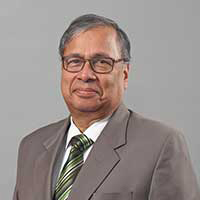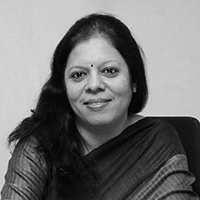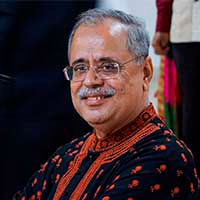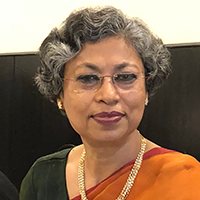Jury Special Mention Awards
Started in 2019, “Jury Special Mention Award” will be conferred for programs that are best-in-class, scalable and replicable across industry verticals. Through this recognition, we aim to enhance sharing of best practices across the organizations.
Evaluation Parameters
Design:
Result-oriented & Measurable Progress
Sustainability Relevance
Scalability & Replicability
Additionality:
Going Beyond Business
- The Award category is open to all past and new participants of the Frost & Sullivan-TERI Sustainability 4.0 Awards.
- Each company can nominate any number of programs under this category.
- Only philanthropic initiatives under CSR mandate are not eligible. Initiatives under a company’s CSR mandate submitted for consideration are eligible if they exhibit company efforts in designing Initiatives that are regularly monitored, verified, and evaluated for effectiveness.
- CSR programs submitted should be on project-mode initiated not before 1st April 2018. Such initiatives should showcase demonstrable socio-environmental impact.
- The nominated programs will be reviewed by the Frost & Sullivan and TERI teams and submitted to the Jury with their observations.
- The programs shortlisted by the Jury shall be required to be presented by the respective companies at the Jury Meeting.
- The award winning programs will receive the “Jury Special Mention Award” at the Awards Banquet on 17th November, 2023.
2022 Jury Panel Members
Mr Ajay Shankar
Former Secretary, DIPP
Government of India (Chairperson)
Mr Ajay Shankar is a Distinguished Fellow at TERI.
He has rich and varied experience in public service for over forty years as a member
of the Indian Administrative Service. He has served in the Government of India in key policy making positions in the areas of industry and energy. He has been Secretary, DIPP (Department of Industrial, Policy and Promotion) in the Government of India as well as Member Secretary, NMCC (National Manufacturing Competitiveness Council).
He had earlier worked in the Ministry of Power for many years and held the posts of Special Secretary, Additional Secretary and Joint Secretary. He played a key role in piloting the reform legislation, the Electricity Act 2003 and the major programme for completing the universalization of electricity access launched in 2005 to electrify 1,25,000 villages. Village electrification has now been completed. He was closely involved in the design of the National Solar Mission at the time of its inception.
He writes on policy issues and his articles have been appearing in the national economic papers.
Ms Anita Arjundas
Mission Director, Krea University & Former Managing Director
Mahindra Lifespaces Ltd.
An entrepreneurial leader who has successfully built brands, destinations and businesses. A passionate champion of sustainable development, Anita believes that transformative solutions can enable people and the planet to live and grow together.
Anita comes with close to 30 years of multi-industry experience in the corporate world with organisations like the Mahindra and Murugappa group. In her last assignment, she was the Managing Director & CEO of Mahindra Lifespace Developers Ltd. and a member of the Group Executive Board at the Mahindra group. Anita is currently associated with the establishment of a new liberal arts and sciences university in India, Krea University as Mission Director and member of the Board of Management.
Anita also serves on the India Advisory Board of The Nature Conservancy, one of the largest not-for-profits in the nature conservation space. She has served in the past on the Steering Board of the World Economic Forum’s Future of Urban Development & Services and on the Board of TER! School of Advanced Studies besides severa! corporate boards.
Anita has an MBA from BIM, India and has done an AMP from The Wharton School, USA She enjoys reading, traveling and supporting causes that are focused on wildlife conservation.
Mr Atul Bagai
Country Head of UN Environment in India
Mr. Atul Bagai joined UN Environment’ s Ozone Action programme under the Montreal Protocol as the Regional Officer for South Asia in 2000 and served as Senior Regional Coordinator to build the capacity of subregional networks in Asia and enable them to meet the compliance targets under the Montreal Protocol. In that capacity, he spearheaded and led sorne innovative initiatives with the Executive Committee ofthe Multilateral Fund. For instance, he was instrumental in designing and developing synergies between Ozone Depleting Substance phase out and climate change in Maldives and Bhutan; green procurement policies in Mongolia taking into account phase-out of Ozone Depleting Substance as a legislation; a study of carbon credits and Ozone Depleting Substance destruction in Nepal; and, most recently, the hydro-chloro-fluoro-carbon phase-out plan for India that included energy efficiency and the cold chain.
Prior to joining UN Environment, Atul worked with the Govemment of India for 17 years in a number of senior positions such as Chief of Staff to two Ministers at the federal leve!(Ministry of Finance and Minist:ry of Externa! Affairs) and to a Chief Minister at the provincial leve l. He also served as the Ozone Cell Director at the Ministry of Environment and Forests. Mr. Bagai, an lndian national, holds a Post-Graduate degree in History from the University of Delhi.
Prof. Joyashree Roy
Department of Economics, Jadavpur University; Bangabandhu Chair Professor
Department of Energy and Environment (EE)
Asian Institute of Technology Bangkok, Thailand
Joyashree Roy is the inaugural Bangabandhu Chair Professor at AIT,Thailand. She is also with the Department of Economics, Jadavpur University, India (on lien currently). She is national fellow of the Indian Council of Social Sciences Research (ICSSR). She is the Founding advisor of the two multi year projects: Global Change Programme and Ryoichi Sasakawa Young Leaders Fellowship Fund (SYLFF) Project at Jadavpur University.
She was Ford Foundation Post Doctoral Fellow at LBNL, Berkeley, USA. She is the recipient of 2021 Paradigm award of The Breakthrough Institute,USA. She was in IPCC-2007 Nobel Peace Prize winning panel and is continuing as Coordinating Lead Author in Sixth assessment cycle of WGIII, of IPCC. She has been a chapter author of Global Energy Assessment, has been associated with the Stern Review Report and many other global and National, Subnational Reports.
She is in the winning team of Prince Sultan Bin Aziz award for water. She has published more than 145 peer reviewed journal articles, authored and edited books. Her research interests are: Economics of Pollution and Climate Change, Modeling energy demand, Economy-wide modeling exercises for deriving policy implications, Water quality demand modeling, Water pricing, Sustainable development, Natural resource accounting, Valuing environmental services, Developmental and environmental issues relevant for informal sectors, Coastal Ecosystem service evaluation, Bangladesh economy and energy policy.
Prof. Royfeatures in the documentary Juice: How Electricity Explains the World which explains among other things how developing countries are trying to bring people out of the dark and to the lights.
Prof. Rangan Banerjee
Forbes Marshall Chair Professor
Department of Energy Science and Engineering
IIT Bombay
Rangan Banerjee is the Forbes Marshall Chair Professor and Head of the Department of Energy Science and Engineering at IIT Bombay – a Department that he helped start in 2007. His areas of interest include energy management, modelling of energy systems, energy planning and policy, hydrogen energy and fuel cells.
He is on the editorial board of Energy for Sustainable Development, International Journal of Sustainable Energy, International Journal of Sustainable Engineering and International Journal of Therrnodynarnics and Frontiers in Energy Research. He has been involved in setting up a Megawattscale Solar Therrnal Power Testing, Sirnulation, Research Facility sponsored by the Ministry of New and Renewable Energy. He was the faculty advisor to Team Shunya the first Indian Student tearn selected for the finals of the Solar Decathlon 2014 held in Europe that involves designing and constructing a fully functional Solar house.
He is a member of the TIFAC Technology Vision 2035 – Apex Committee and Chairman of the Energy Technology Theme. He was a Convening Lead Analyst for Industrial End Use Efficiency and a member of the executive committee for the Global Energy Assessment (2008-2011) coordinated by the International Institute for Applied Systems Analysis. He was a member of the Working Group on New and Renewable Energy for the Eleventh and Twelfth Five Year Plans and a member of the Planning Commission’s Integrated Energy Policy. He was a Member of International committee to review UK’s Energy Research Programme in 2010 (RCUK Review ofEnergy).
He has co- authored a book on Planning for Demand Side Management in the Power sector, a book on Energy Cost in the Chemical Industry and a book on Engineering Education in India. He has conducted two international training programmes on solar energy and severa! National programmes on renewable energy and Energy Management. He is also an Adjunct faculty (Honorary) in the Department of Engineering & Public Policy, Carnegie Mellon University. He has been the Dean(R&D) of IIT Bomba y. He has received the Excellence in Teaching Award frorn IIT Bornbay and is a Fellow of the Indian National Acaderny of Engineering.





